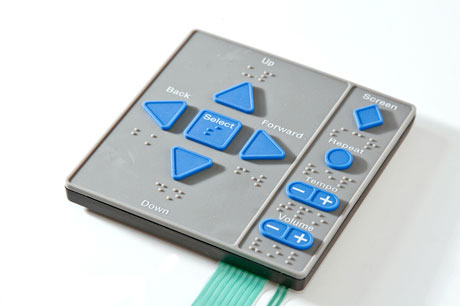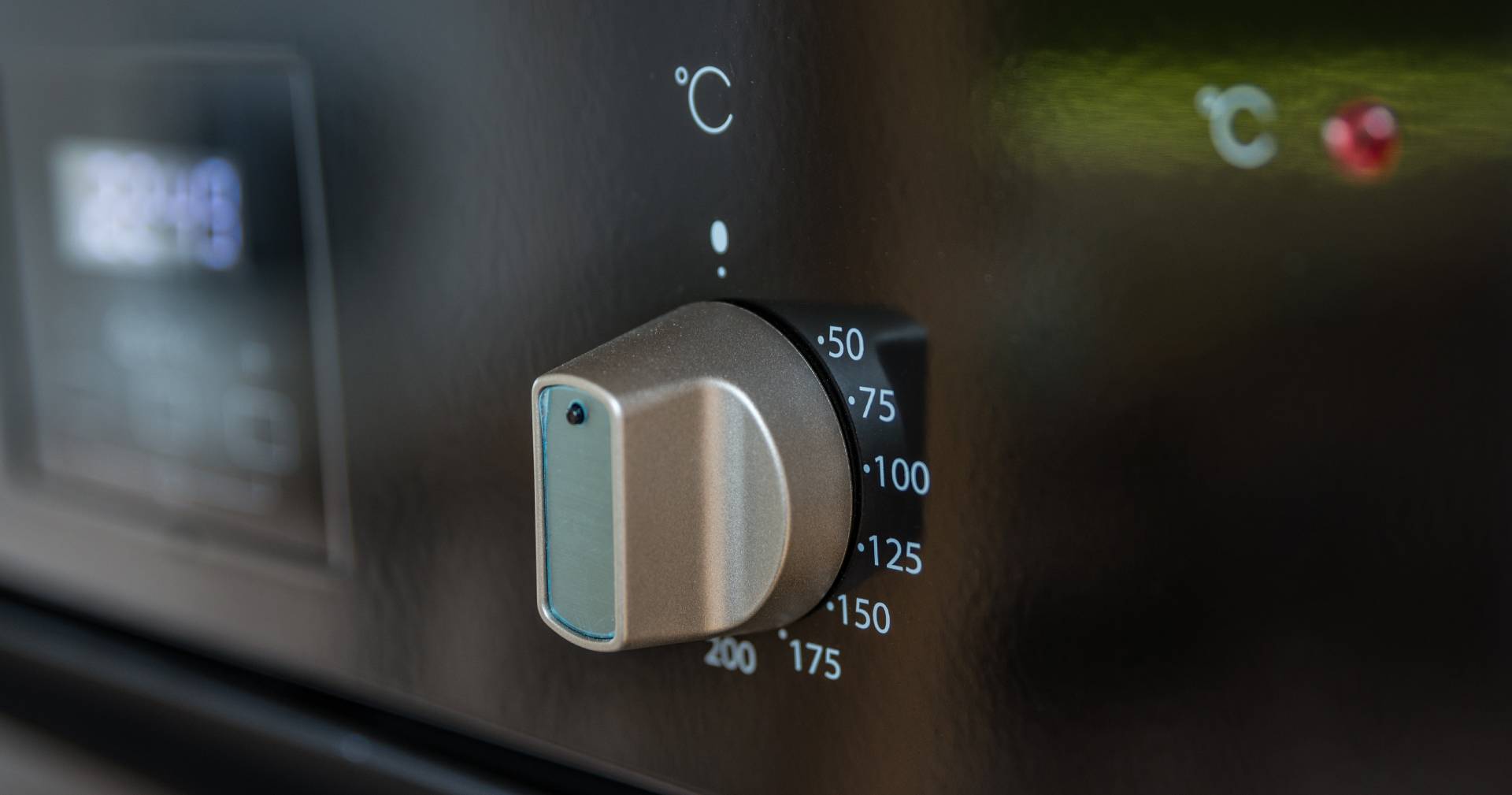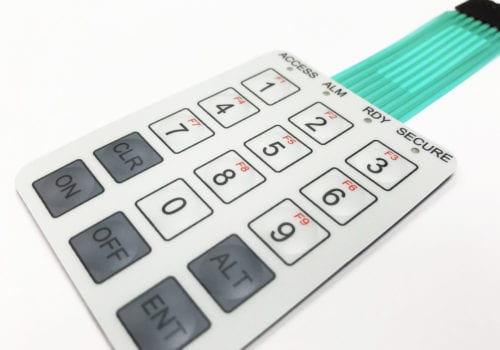Custom Membrane Switches for Specialized Applications: A Deep Dive
Custom Membrane Switches for Specialized Applications: A Deep Dive
Blog Article
Recognizing the Value of Membrane Switches in Individual Interfaces
Membrane switches are important elements in the layout of efficient user interfaces, facilitating not just capability yet additionally improving aesthetic appeal and customer interaction. As we check out the future patterns and numerous advantages associated with Membrane innovation, it comes to be clear that these buttons are a lot more than simply parts; they represent a convergence of advancement and functionality.
What Are Membrane Switches?

The spacer layer, which includes sticky residential properties, permits for the splitting up of the circuit layer from the overlay, guaranteeing that the switch stays in a non-activated state up until pushed. When pressure is put on the overlay, it presses the spacer layer, linking the void and completing the circuit in the underlying layer. This layout not only reduces the physical area required for standard mechanical buttons yet additionally boosts the durability of the tool, as Membrane buttons are generally immune to dirt, moisture, and other environmental aspects.
Generally located in applications ranging from customer electronic devices to clinical devices, Membrane buttons are essential to modern technology, supplying a reliable and easy to use user interface that straightens with modern design demands.
Benefits of Membrane Buttons
While numerous switch technologies exist, Membrane Switches offer distinctive advantages that make them specifically desirable in different applications. Among the main benefits of Membrane switches is their portable design, which enables for space-saving applications in devices where property is limited. Their thin account not only boosts aesthetic allure however also assists in lightweight building.
Another substantial advantage is their resistance to ecological elements. Membrane buttons are generally secured versus dampness, dirt, and impurities, making them excellent for usage sought after atmospheres, such as medical tools and industrial tools. This resilience prolongs the life expectancy of the button, minimizing maintenance expenses and enhancing reliability.
Furthermore, Membrane buttons can be personalized to fulfill details style requirements, incorporating distinct graphics and colors that improve customer communication. Their tactile responses options can also be customized to give an enjoyable individual experience. Furthermore, Membrane switches are cost-efficient, especially in high-volume applications, as they can be created successfully.
Applications in Different Industries

In the customer electronic devices sector, Membrane switches prevail in devices such as microwaves, washing makers, and remotes. Their responsive feedback and aesthetic options improve user experience while providing a smooth, modern look. Additionally, automobile producers utilize Membrane buttons in dashboard controls and infotainment systems, where space is restricted, and user engagement is essential.
Additionally, the commercial field leverages Membrane switches in control panels for equipment and devices, permitting instinctive procedure in often harsh environments. Their resistance to chemicals and dampness guarantees long life and dependability in these applications. Generally, the adaptability of Membrane Switches adds considerably to their extensive usage, making them indispensable in different technological domains.
Layout Factors To Consider for Membrane Switches

When making Membrane buttons, a number of key factors to consider should be considered to guarantee optimum capability and user experience. To start with, the selection of materials is critical; selecting durable, premium substratums can improve the button's long life and resistance to environmental elements such as dampness and temperature variations.
Second of all, the design of the visuals overlay need to prioritize clarity and simplicity of usage. Symbols and text have to be understandable, and the layout needs to help with instinctive interaction (membrane switches). Additionally, responsive comments is necessary; integrating a tactile dome or various other devices can boost the user experience by providing physical verification of activation
Another crucial factor is the button's electrical efficiency. Developers must make certain that the conductive traces are effectively designed to decrease resistance and avoid signal interference. This involves evaluating the needed actuation pressure and ensuring compatibility with the digital components they will certainly interface with.

Future Trends in Membrane Innovation
As technology remains to development, Membrane buttons are positioned to progress dramatically, driven by technologies in products and producing methods. One emerging fad is the consolidation of advanced materials, such as flexible substratums and conductive inks, which improve longevity and minimize the total weight of Membrane switches. These materials not just boost the tactile response yet additionally enable the design of buttons that can endure harsher ecological problems.
Furthermore, the combination of touch-sensitive technologies is transforming traditional Membrane Switches into more interactive interface. Capacitive touch sensing units embedded within Membrane switch panels can give an extra responsive and instinctive user experience, aligning with the growing need Homepage for streamlined, modern-day layouts in customer electronics.
Furthermore, innovations in printing methods, such as digital and 3D printing, make it possible for fast prototyping and modification of Membrane switches. This versatility allows manufacturers to react faster to market demands and customer choices.
Finally, sustainability is coming to be a substantial focus, with producers checking out green materials and procedures. As these patterns unravel, the future of Membrane innovation promises boosted performance, visual allure, and ecological duty, strengthening their function in advanced customer interfaces across different industries.
Conclusion
In final thought, Membrane Switches stand for an important part in the layout of customer interfaces, combining capability with aesthetic adaptability. As advancements in innovation proceed, the advancement of Membrane switches is expected to additional fine-tune individual interfaces, driving technology and boosting usability in an increasingly complicated technological landscape.
Membrane switches are important elements in the style of efficient customer interfaces, assisting in not only capability yet additionally boosting visual appeal and individual interaction.Membrane Switches offer as an important component in various user interfaces, assisting in a smooth interaction between customers and electronic devices.While many button technologies exist, Membrane Switches offer unique benefits that Homepage make them specifically desirable in different applications.Moreover, Membrane switches can be tailored to satisfy specific style needs, integrating one-of-a-kind graphics and shades that enhance user interaction.In final thought, Membrane Switches represent a crucial component in the layout of user interfaces, incorporating functionality with visual versatility.
Report this page